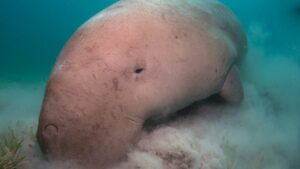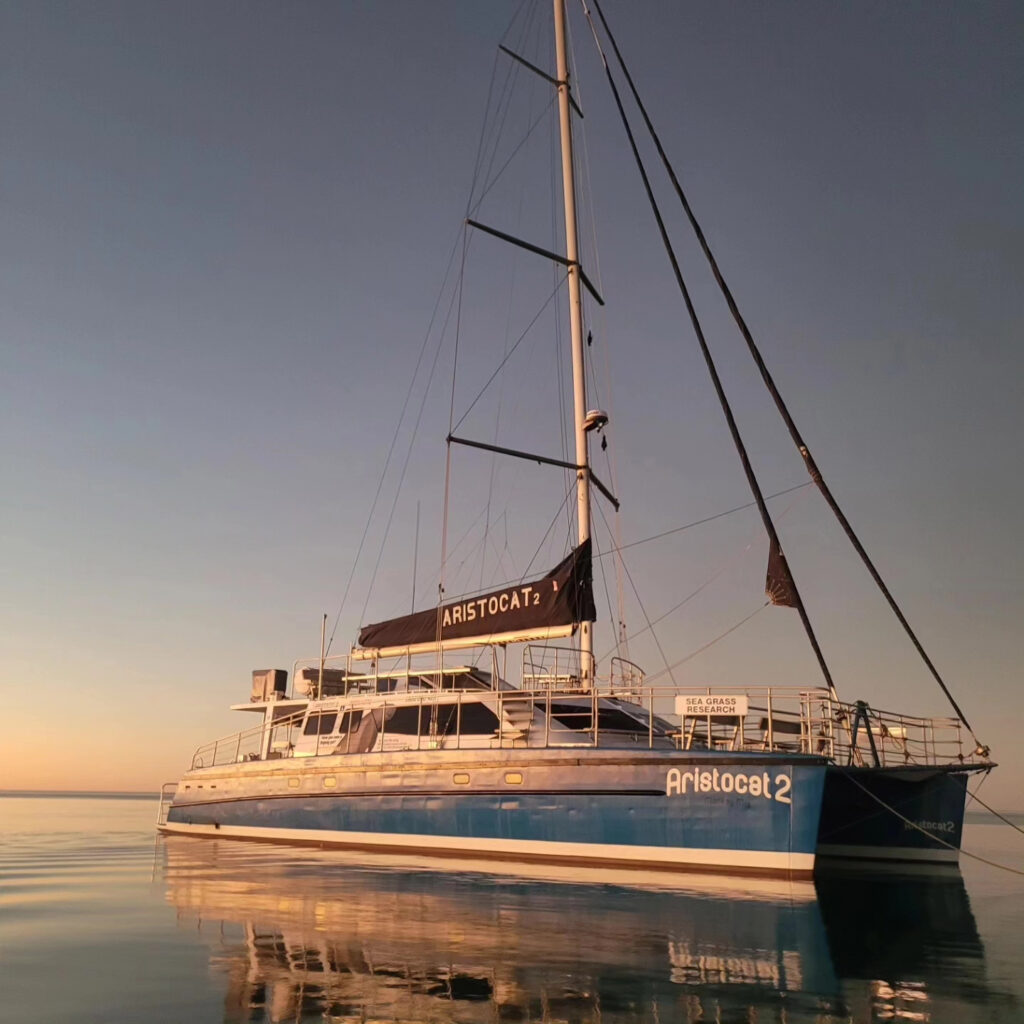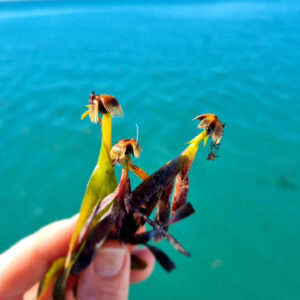
A mission to restore Shark Bay seagrass – a vital oceanic food source for dugongs – is being hampered by environmental red tape, according to volunteers.
The Malgana people, Shark Bay’s Indigenous traditional owners, have been working with a family-run project to restore almost 1,500 sq/km of seagrass in Shark Bay, destroyed by a marine heatwave in 2011.
Experts caution that Shark Bay’s seagrass loss endangers marine life, from dugongs and sea turtles to fish, crabs, and prawns. The area hosts 10 per cent of the world’s threatened dugong population, raising the stakes.

Also crucial for water quality and carbon storage, estimates suggest seagrass meadows can capture up to 83 million metric tons of carbon annually.
The head of the Monkey Mia Restoration Project Greg Ridgley said they release hessian sandbags onto the ocean floor to give passing seagrass seedlings something to cling to and grow.
Mr Ridgley said the bags became food and shelter for marine life, but state officials require costly scientific reports before placing more than 2000 bags.
“One of the main reasons we lack government support is the absence of a scientist due to financial constraints,” Mr Ridgley explains.
“We’re in a heritage area and a marine park, so that’s a big issue… we have a letter of support from the Malgana people… as far as the DBCA are concerned, if we could get the science, we would have a good leg in.”
According to a spokesperson from the DBCA two commercial organisations have approached the department regarding seagrass restoration projects in Shark Bay, working closely with both organisations to aid the approval process.

The spokesperson also stated in 2023, the department approved a seagrass restoration research trial under the CALM Act and continues to assist with approvals for seagrass restoration advocates in Shark Bay.
Nationals’ leader Shane Love criticised the state government for not better supporting volunteers’ efforts to restore seagrass in Shark Bay.
“If Jade and Liam and their family-operated business are unable to obtain the necessary licences in a timely fashion, they will not be able to carry out their work, and they will not be able to secure government and non-government grants to support their vital work in sustaining our dugong population,” Mr Love said.
